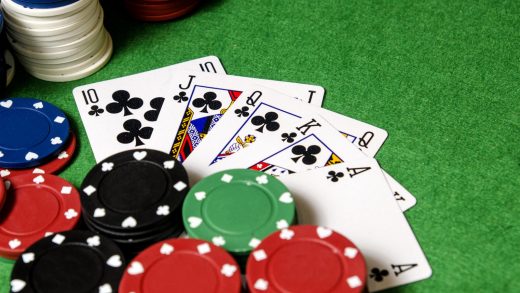Poker Halal Or Haram
The milk of Meiji is Haram (confirmed form ingredients). All the other brands could not confirm if their products are halal. The japanese sister has asked both of Bean Stalk Snow (group comapny of Yukijirushi) and Wakoudou (group company of Asahi Beer) about their baby milk, unfortunately, their replies were not satisfactory. Such sweepstakes are permissible in Islam. But if a sweepstake requires to purchase a ticket or something similar, and get nothing in return for the value except for those who win, then it would be Haram, because that would be gambling. All kinds of gambling (al-maysir or al-qimar) are Haram in Islam. The opposite of halal is haram, which means unlawful or prohibited. Halal and haram are universal terms that apply to all facets of life. These terms are commonly used in relation to food products, meat products, cosmetics, personal care products, pharmaceuticals, food ingredients, and food contact materials.
- Keadaan yang Mengharuskan Khitan 2 kali. Hukum Main Poker tanpa Taruhan. Hukuman Untuk Preman Dalam Islam.
- For many Sikhs (and in some small Sikh sects, e.g. Akhand Kirtani Jatha) eating any meat cooked by Jews (i.e., kosher) and Muslims (i.e., halal) is believed to be forbidden, this is a universally held belief. Extramarital sexual relations: Adultery is prohibited; Sikhs are not allowed to cheat on their spouse.
There are a number of prohibitions in Sikhism that Sikhs follow—particularly Amritdhari (formally baptized) and Keshdhari (non-baptized but practicing).
Prohibitions[edit]
- Haircuts: Cutting or removing hair (kesh) from any body part is strictly forbidden despite shaving or trimming facial and nostril hairs for both Amritdhari and Keshdhari Sikhs.
- Intoxication: Consumption of drugs, alcohol, and tobacco, and other intoxicants is not allowed for Amritdhari and Keshdhari Sikhs. Drugs, alcohol and tobacco are forbidden for all.[1][2][3] Cannabis (sukha) is prohibited in smoking form, but ritually consumed in edible form by some Sikhs (Shaheedi Degh).[4][5]
- Gambling: Gambling (jooa), be it in any form—such as lottery, roulette, poker, american bingo or british bingo—is prohibited in some 'codes of conduct', such as the Sikh Rehat Maryada.
- Blind spirituality: Idolatry, superstitions, and rituals should not be observed or followed, including pilgrimages, fasting, and ritual purification; circumcision; idol or grave worship; and compulsory wearing of the veil for women. Observation of the five Ks, however, is not considered blind superstition.
- Material obsession: Obsession with material wealth is not encouraged in Sikhism.
- Sacrifice of creatures: Practices such as sati (widows throwing themselves on the funeralpyre of their husbands and wives) and ritual animal sacrifice to celebrate holy occasions are forbidden.
- Non-family-oriented living: Sikhs are discouraged to live as a recluse, beggar, yogi, monastic (monk/nun), or celibate.[citation needed]
- Worthless talk: Bragging, gossip, lying, slander, 'backstabbing,' et cetera, are not permitted. The Guru Granth Sahib tells the Sikh, 'your mouth has not stopped slandering and gossiping about others. Your service is useless and fruitless.'[6]
- Priestly class: Sikhism does not have priests, as they were abolished by the 10th Guru of Sikhism, Guru Gobind Singh.[7] The only position he left was a Granthi to look after the Guru Granth Sahib; any Sikh is free to become Granthi or read from the Guru Granth Sahib.[7]
- Eating meat killed in a ritualistic manner: Sikhs are strictly prohibited from eating kutha meat—meat killed in a ritualistic manner (such as halal)[8]—or any meat where langar is served, except jhatka meat.[9] For many Sikhs (and in some small Sikh sects, e.g. Akhand Kirtani Jatha) eating any meat cooked by Jews (i.e., kosher) and Muslims (i.e., halal) is believed to be forbidden, this is a universally held belief.[10]
- Extramarital sexual relations: Adultery is prohibited; Sikhs are not allowed to cheat on their spouse.[1][2][11][12]
- Cutting turbans whilst worn: Cutting turbans too short when worn (excepting excessive material) will be damaged by scissors as it is strictly forbidden the same way as cutting hair.
- Swimming water through turbans: Swim caps are a different head gear to wear as a substitute to turbans when all Sikhs go to swimming pools at leisure centres.
Violation of prohibitions[edit]
Not all Sikh-identified people subscribe to these prohibitions. The Sahajdhari Sikhs reject most of the prohibitions, including trimming of hair (kesh). Some young Sikhs are now cutting their hair to the dismay of spiritual leaders.[13] According to the Sikh clergy, 'the fad among youth to shed the pagri' is being observed more commonly among the Sikh youth in Punjab than Sikhs in other Indian states.[14]

Nihang Sikhs of Punjab, who are defenders of historic Sikh shrines, are an exception and consume an intoxicant called bhang (cannabis sativa), opium and other narcotics to help in meditation,[15][16][17] saying that it is 'old tradition' (Punjabi: puratan maryada). Bhang is common in India; according to a legend, even the Hindu God Shiva was fond of bhang and it became his favourite food.[18] In 2001, Baba Santa Singh, the Jathedar of Budha Dal, along with 20 Nihang chiefs, refused to accept the ban on the consumption of bhang by the highest Sikh clergy.[19] Baba Santa Singh was excommunicated and replaced with Baba Balbir Singh, who agreed to shun the consumption of bhang.[20]
The Udasis, who consider themselves as a denomination of Sikhism, lay emphasis on being ascetic, thus violating the 'Non-family-oriented living' principle. Sri Chand, the ascetic son of Guru Nanak, was the founder of the Udasi.
See also[edit]

References[edit]
- ^ abSikh Reht Maryada, The Definition of Sikh, Sikh Conduct & Conventions, Sikh Religion Living, India §4
- ^ abSikh Reht Maryada, The Definition of Sikh, Sikh Conduct & Conventions, Sikh Religion Living, India §6
- ^Sikh Code Of Conduct
- ^Pashaura Singh; Louis E. Fenech (March 2014). The Oxford Handbook of Sikh Studies. OUP Oxford. pp. 378–. ISBN978-0-19-969930-8.
- ^Pashaura Singh; Michael Hawley (7 December 2012). Re-imagining South Asian Religions: Essays in Honour of Professors Harold G. Coward and Ronald W. Neufeldt. BRILL. pp. 34–. ISBN90-04-24236-8.
- ^'Sri Granth: Sri Guru Granth Sahib'. srigranth.org.
- ^ ab'Sikhism Religion of the Sikh People'. sikhs.org.
- ^Sikhs and Sikhism, Dr. I.J.Singh, Manohar Publishers.ISBN978-8173040580
- ^'Sikhism, A Complete Introduction' by Dr. H.S. Singha & Satwant Kaur Hemkunt, Hemkunt Press, New Delhi, 1994, ISBN81-7010-245-6
- ^'Sikh Identity: An Exploration of Groups Among Sikhs' by Opinderjit Kaur Takhar, pg. 51, Ashgate Publishing, Ltd, 2005, ISBN0-7546-5202-5
- ^The Sikh Rehat Maryada: Section Four Gateway to Sikhism-Gateway to Sikhism
- ^Jakobsh, Doris R. 2003. Relocating Gender In Sikh History: Transformation, Meaning and Identity. New Delhi: Oxford University Press. pp. 39–40
- ^Young Sikh Men Get Haircuts, Annoying Their Elders. New York Times. March 29, 2007.
- ^''Pagri not very attractive, out of tune with times''. The Times of India.
- ^Richard Beck, David Worden. Gcse Religious Studies for Aqa. p. 64. ISBN0-435-30692-8.
- ^'Hola Mohalla: United colours of celebrations'. The Times of India.
- ^'The Telegraph – Calcutta : Opinion'. telegraphindia.com.
- ^Richard Beck, David Worden. Gcse Religious Studies for Aqa. p. 63. ISBN0-435-30692-8.
- ^Nihangs ‘not to accept’ ban on bhang. The Tribune. March 26, 2001.
- ^No ‘bhang’ at Hola Mohalla. The Tribune. March 10, 2001.
External links[edit]
 Few months ago some muslim women asked me about halal baby milk. A japanese mulim woman helped us to get more information about the baby milk prouced in Japan.
Few months ago some muslim women asked me about halal baby milk. A japanese mulim woman helped us to get more information about the baby milk prouced in Japan.Unfortunately, the only confirmed halal milk for babies we know is 'Chirumiru' of Morinaga: from (9months to 3 years)(http://www.hagukumi.ne.jp /products/chirumiru/chirumiru .shtml)
The japanese sister, asked the maker Morinaga about 'HAGUKUMI' suitable for newborn until 9 months, this is Morinaga answer:
The milk of Meiji is Haram (confirmed form ingredients).
Poker Halal Or Haram Attack
All the other brands could not confirm if their products are halal. The japanese sister has asked both of Bean Stalk Snow (group comapny of Yukijirushi) and Wakoudou (group company of Asahi Beer) about their baby milk, unfortunately, their replies were not satisfactory.
Therefore they cannot guarantee if their products are halal and they request consumers who have religious restrictions shall not use their products.